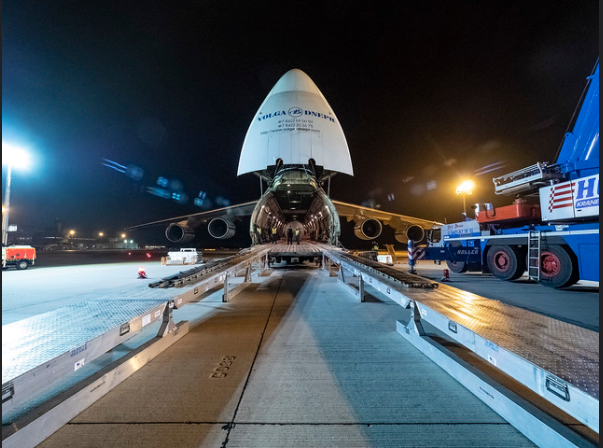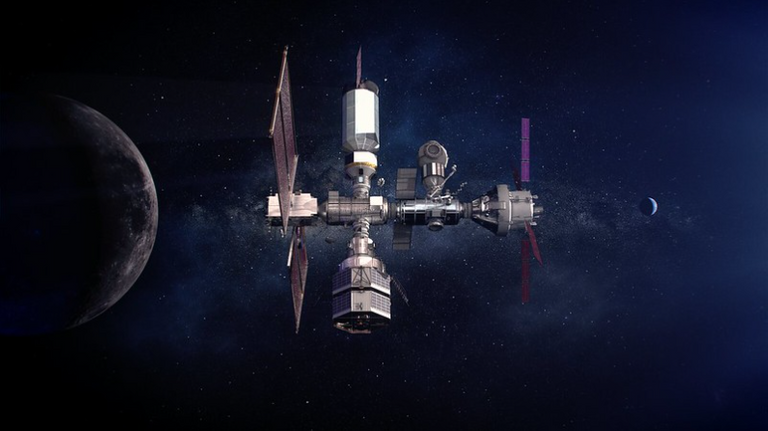Space programs by countries
While it is easy to fantasize about space travels, the truth is that space travels remain a very expensive venture, hence, why it is mostly carried out by some countries through their space programs. Individuals like Elon Musk and Jeff Bezos have also delved into space travels, even going as far as commercializing it. However, the majority of space travel is carried out by some
countries of the world through their space programs. Different countries of the world have joined the space exploration race - some are major players while others are minor, here are bits about major space programs that are being run today.

National Aeronautics and Space Administration (NASA)
This is the most popular on the list, this can be traced to its endless depictions in movies and mainstream news. The agency was established in 1958 after parent body NACA (National Advisory Committee for Aeronautics) was dissolved. NACA's aim was to manage the United States' interest in rocketry and upper atmospheric sciences. Ever since, NASA has only made exploits upon exploits, they were the first to explore the inner and outer Solar system, also they were the first to send a human to the moon.
A number of popular mainstream everyday technologies such as the MRI machine, GPS, etc. can be traced to having their roots or part of it from NASA. Major achievements from NASA include but are not limited to sending living organisms into space, launching a communications satellite in 1958, the 1961 investigation of solar winds and interplanetary magnetic fields, sending astronauts to the moon in 1969, and 2018's unbeaten closest approach to the Sun. Though NASA is a big name in space exploration, other competitive agencies also have a lot of credits in their pockets.
Roscosmos, the Russian space agency
They boast of sending the first man and woman to space (Yuri Gagarin in 1961, Valentina Tereshkova in 1963) through their Vostok program. Having engaged in some intense space exploration race with NASA in the 19th century, a number of achievements are hidden under their sleeves. Roscosmos led the early years of the Space race now the current provider of human space flight in the international scene, this means their cosmonauts will possess more space station experience than any other country's cosmonauts.
Roscosmos was the most invested in ISS, as in 2009, 50% of Russia's space exploration budget was directed at the ISS. With Roscosmos leaving the ISS agreement and pact, they are planning to build their ISS before 2025. It is easy to assume Russia's space agency and programs started after the Second World War, the history of this agency can still be backdated as far back as pre-war Soviet time.
The CSA (Canada Space Agency)
With its headquarters in Quebec and established in 1990, Canada's own Space Agency started taking form from 1945 and 1960 when Canada launched its satellite and small launcher project. By 1962, Alouette 1's launch made Canada the third country in space.
The success of Alouette promoted further studies and works which led to the establishment of the CSA. The CSA is keen on the advancement of space knowledge through science, it has been done to the end that space science provides social & economic benefits for Canadians. The Agency is headed by the President of Canada.
The ESA (European Space Agency)
The European space agency was established in 1975 and it is an intergovernmental agency of 22 nations, all coming together to look at how space exploration can be used for the betterment of Europeans. Its headquarters is in Paris. The European Space agency came to being with the efforts of two scientists ( Edoardo Amaldi and Pierre Auger) after they came together at a time when most European scientists had moved to the USA for better life opportunities.
They decided that Europe should have a common space legacy because National space participation would amount to nothing, also that Europe should not be left behind in the space race. Subsequently, the Agency subtly began to take form and Western European countries ended up having two agencies, the first was focused on ELDO (European Launch Development Organization) which was the development of a launch system, while the other ESRO (European Space Research Organization) which eventually led to the formation of the European Space Agency in 1975.
They are still very much active participants in the International Space Station, although only 10 of the members of the European Space Agency participate in the ISS arrangement.

JAXA (Japan Aerospace Exploration Agency)
JAXA is a merger of Japan's Institute of Space and Astronautical Science (ISAS), the National Aerospace Laboratory of Japan (NAL), and the National Space Development Agency of Japan (NASDA). Prior to the merger, these three bodies were able to individually achieve exploits. Japan was able to launch its first satellite, Ohsumi, through ISAS developed rockets.
NASDA developed satellites and launch vehicles, they also launched and tracked them. NAL was heavily involved in the development of ALFLEX (Automatic Landing Flight Experiment). The merger led to the formation of JAXA in 2003. JAXA is in charge of the development of space exploration technology for Japan. The headquarters of the JAXA is located in the Chofu-city of Tokyo.
JAXA as an agency is divided into seven bodies:
- The Space Transportation Mission Directorate
- The Space Applications Mission Directorate
- The Human Space Systems and Utilization Mission Directorate
- The Aerospace Research and Development Directorate
- The Institute of Space and Astronautical Science
- The Aviation Program Group
- The Lunar and Planetary Exploration Program Group
Its motto is One JAXA and its slogan is Explore to Realize.
The competition between these superpowers in the space race still continues, for a long period, it was utilized for a much better venture through their works on The International Space Center. With Roscosmos's departure from the ISS to build their own ISS, one can only wonder what turns the space agency race will take.
The members of the ISS are Canada, Japan, the Russian Federation, the United States, and eleven Member States of the European Space Agency (Denmark, France, Germany, The Netherlands, Italy, Norway, Spain, Sweden, Switzerland, Belgium, and the United Kingdom)
Fascinating topic and presentation. Thank you for sharing. Upvoted and promoted. I love the breakdown of space agencies. It's a topic I couldn't help but read about.
Thank you for the audience and for such an inspiring comment. It is a great feeling to know that someone reads your work and finds them educative.
I know how you feel. Also, I feel the engagement also adds to that feeling. Personally, I think it's as rewarding as the money you make. It gives meaning to your effort.
Thanks for the detailed presentation.
So will that be Russia against every body else? If I'm not mistaken, Gateway, although a NASA project and hence mostly american, will be somewhat of an international collaboration.
You ask an excellent question. In the 1960's, the competition brought a lot of advances, but nowadays, can they really afford to work separately?
It is a slippery slope, to be honest. There is competition on one side and on the other side, there is a huge need for collaboration.
Thanks for your contribution to the STEMsocial community. Feel free to join us on discord to get to know the rest of us!
Please consider supporting our funding proposal, approving our witness (@stem.witness) or delegating to the @stemsocial account (for some ROI).
Please consider using the STEMsocial app app and including @stemsocial as a beneficiary to get a stronger support.
This is a great article summarising the major countries and their space agencies. I now you wanted to only touch on the major players but I have a couple of additions, that are worth a mention
China - They are only the 3rd country that has launched humans into space, which are aptly names Taikonauts.
Their space program is run by CNSA - China National space Administration.
India - India is famous for their PLSV launch vehicle which has launched a probe to mars. The agency is called ISRO Indian space Research Organisation.
Australia - This is my home country that's why I am mentioning it, but Australia was the 4th country to launch a satellite to orbit in 1968 behind, Russia, USA, and France, unfortunately there has been a massive lack of interest and investment since, and only recently on 1st of July 2018 the Australian space agency was formed. At this stage there is currently no local launch capacity but that's likely to change in a few years.
Great contribution! I decided to limit it to just the mentioned few. Of course, there are other bodies making headway into space programs in their own little ways. Thanks for the thoughtful contribution.
Very good and refreshing information from the main agencies directing their efforts to space exploration. It’s a big picture. The addresses of each locality will be tied to the technological resources that have been developed for decades and that take action in the materialization of many of their actions. In addition, multidisciplinary responsibility at the global level. Thank you.
You are welcome. Thank you also for the great contribution